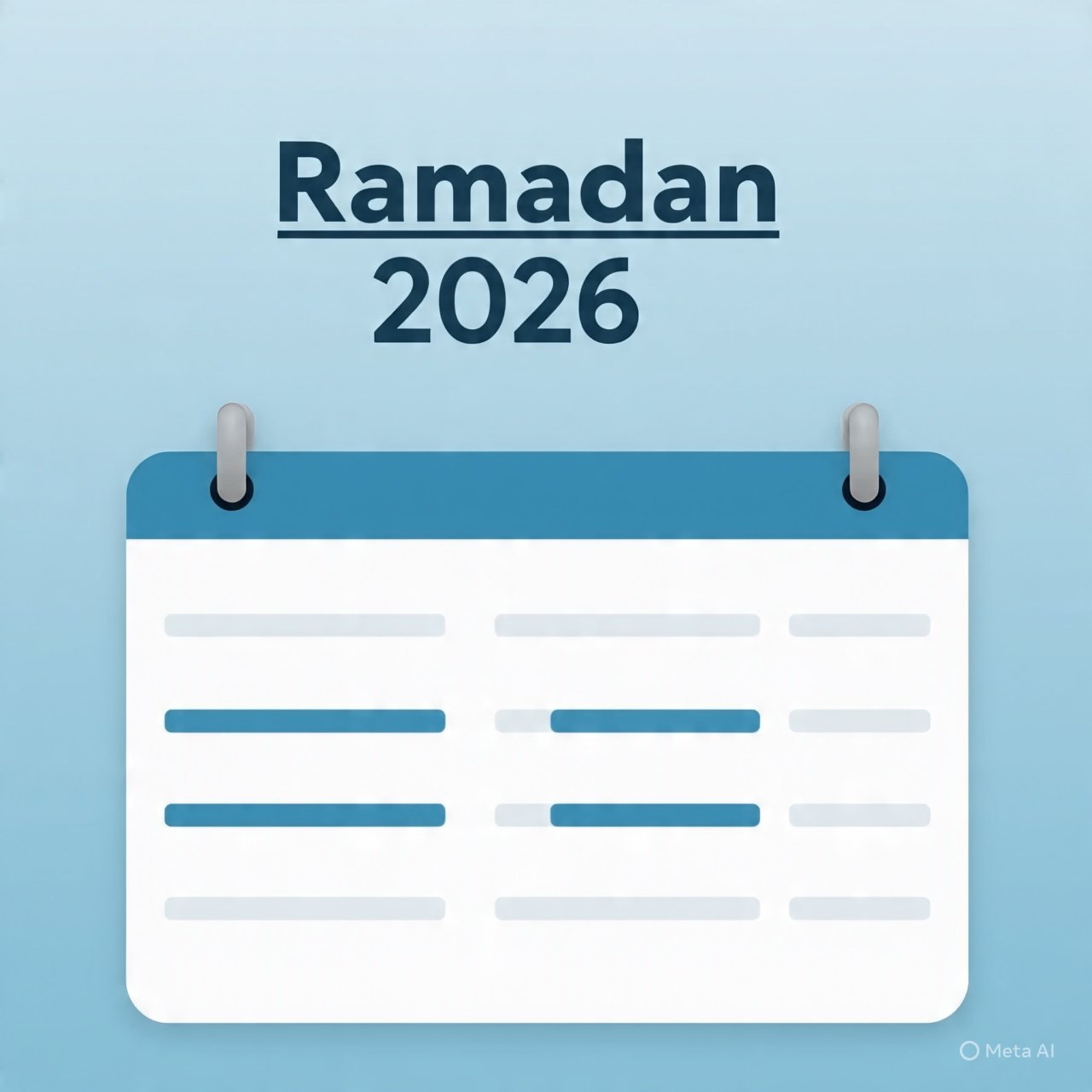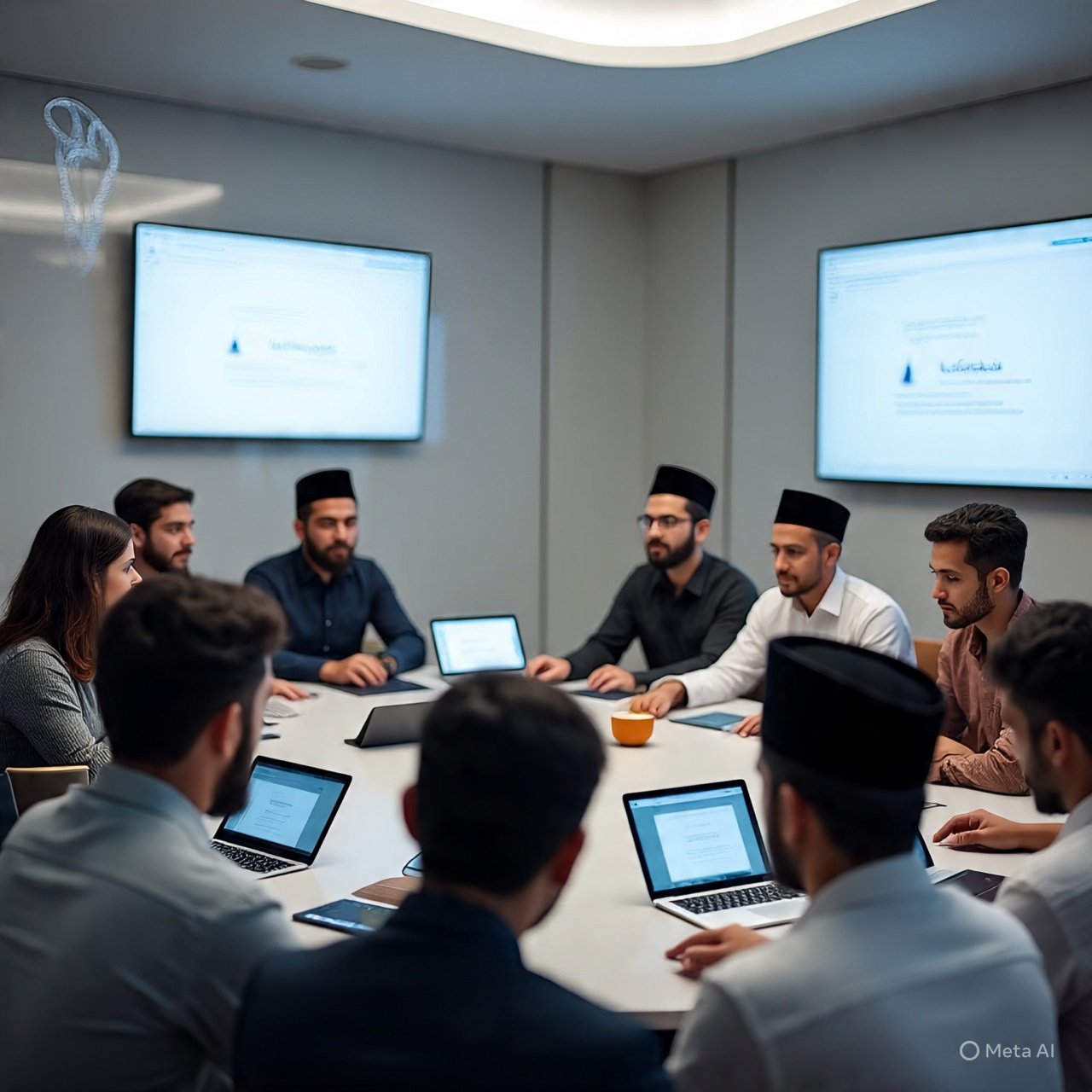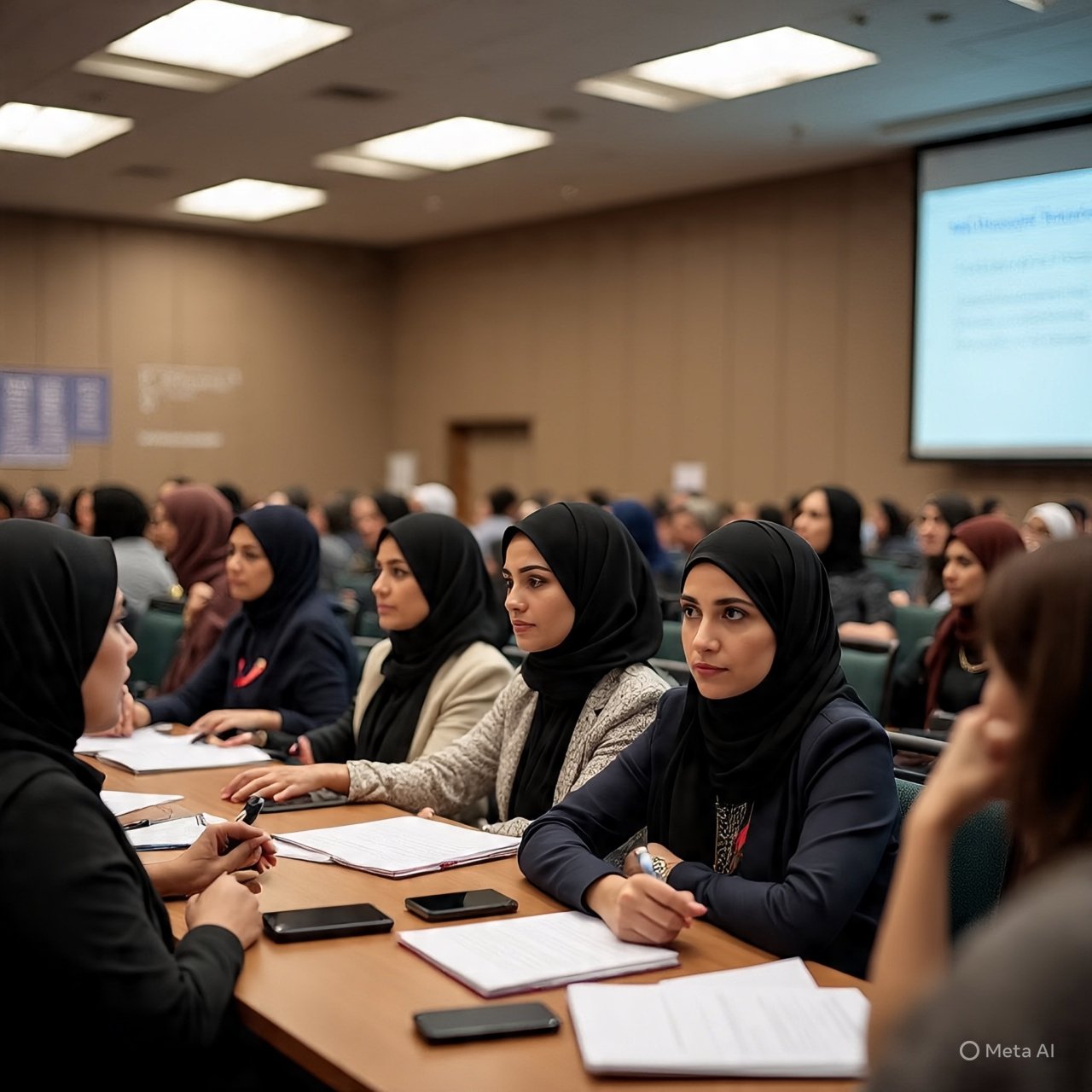Ramadan 2026: New Era of Spiritual Growth in the Shadow of Artificial Intelligence
Introduction
The spiritual atmosphere of Ramadan has always been a center of faith and renewal, and now in 2026, this holy month stands at the threshold of revolutionary transformation by combining with the miraculous capabilities of Artificial Intelligence (AI). Muslims worldwide are now welcoming this blessed month not only with determination to purify their hearts and souls but also by making cutting-edge digital technology an integral part of their worship and daily routines. This is the Ramadan of the modern era, where smartphones and AI apps are building a strong bridge between spirituality and science. These applications not only accurately track Suhoor and Iftar times for fasting individuals but also serve as personalized spiritual guides, Quran comprehension assistants, and guardians of social connections. This article will delve deep into this amazing transformation and examine all the ways AI apps are fundamentally changing the fasting and prayer experiences of Ramadan 2026, creating a “smart spiritual environment” that was never possible before.
Intelligent Suhoor and Iftar Tracker – Most Accurate Time Indication
The spiritual journey of Ramadan begins with the sacred moments of Suhoor, and AI apps are now providing this with new accuracy and ease. The advanced applications of 2026 don’t rely solely on local mosque announcements; rather, they analyze data in real-time through artificial intelligence. These apps use your location’s precise geographical information (geo-location), considering weather conditions, light intensity, and even minor variations of the earth to determine the most accurate times for sunrise and sunset. An algorithm continuously combines NASA satellite data and local astronomical calculations to arrange specific Suhoor and Iftar alarms for every fasting person. This is proving to be an unexpected blessing not only for urban areas but also for remote villages and traveling Muslims. The app’s notification system also gives you a “gentle warning” before Suhoor ends, so there’s no last-minute rush for eating and drinking. Thus, fasting individuals can begin and end their fast with inner peace.
Personalized Spiritual Guide – Your AI Mentor
During fasting, our psychology and spiritual condition continuously change. The AI apps of 2026 are taking this aspect very seriously too. These applications play the role of a “personal spiritual guide” that analyzes your spiritual health based on your daily actions, prayer regularity, and responses to spiritual quizzes within the app. Machine learning models learn when you meditate more, which prayers you prefer, and what types of Islamic topics interest you most. Based on this data, the app suggests a specific spiritual exercise for you daily. For example, if the app senses that your patience level is low, it will recommend reading Quranic verses and Hadiths about patience, along with small practical tips. This is a personal mentor that is always with you, cares about your spiritual growth, and helps you achieve Ramadan’s objectives.
Artificial Intelligence Assistance for Prayers – Qibla Direction and Recitation Guidance
Prayer is the fundamental pillar of Islam, and AI technology is taking it to new heights. Modern apps of 2026 contain an integrated “prayer assistant” that performs several amazing tasks. First, the app uses smartphone sensors and cameras to indicate the Qibla direction with extreme accuracy, whether you’re inside a strange building or in a jungle. Second, it helps improve recitation accuracy. The app contains an AI-powered Tajweed checker that listens to your recitation, analyzes it, highlights mistakes, and teaches correct pronunciation. This feature serves as an excellent teacher for new Muslims and children. Furthermore, the app can also recognize which chapter you recited through voice recognition and provides you with brief information about that chapter’s interpretation and virtues accordingly. Thus, prayer doesn’t remain merely a physical worship but becomes a deep intellectual and spiritual practice.
AI Coach for Mental Health and Patience – Maintaining Psychological Balance
Feeling mental pressure and irritability due to hunger, thirst, and changes in routine life during fasting is natural. This is where AI apps work like expert psychologists. Modern applications are equipped with advanced “mood analysis” tools to track your mood. These tools analyze your typing speed, voice tone, and even biological markers collected through your smartwatch like heartbeat and sleep quality. If the app senses your patience is weakening or you’re under stress, it immediately intervenes. It suggests deep breathing exercises, short meditation sessions, or listening to peaceful Islamic music. Additionally, it sends you daily quotes and short stories based on patience and gratitude that help maintain emotional balance. Thus, these apps strengthen fasting individuals not only physically but also mentally, playing an important role in achieving Ramadan’s actual objective of attaining Taqwa.
Revolutionary Era of Quran Understanding – Assistance in Comprehension and Reflection
Ramadan is the month when the Quran was revealed, and AI technology is now making access to its depths easier for every Muslim. The Quran apps of 2026 aren’t just digital copies; they are complete educational platforms. One prominent feature is “contextual Tafsir.” When you read any verse, AI helps you understand its context, reasons for revelation, and its connection with modern scientific facts. Another amazing feature is the “personal Quran interactive guide.” The app automatically searches and presents relevant Quranic verses according to your daily problems and questions. For example, if you search about “honesty in business,” the app will not only show relevant verses but also provide access to short videos, articles, and even online sessions with experts. Thus, the process of Quran understanding doesn’t remain one-sided reading but becomes a dynamic, two-way dialogue that provides intellectual and spiritual satisfaction to the fasting individual.
New Concept of Collective Worship – Establishment of Virtual Congregation
After the coronavirus pandemic, the concept of virtual communities has become common, and now AI has extended it to Ramadan worship. In 2026, AI apps have taken the concept of “virtual prayer congregation” to a new level. These apps aren’t limited to video conferencing; they provide a complete virtual mosque experience. You can create a virtual prayer room with friends and family, where AI selects an authentic reciter to lead the prayer. Amazingly, AI uses “lip-sync” technology to synchronize all worshippers’ voices so that Takbeerat and recitation occur together, creating the feeling of a real congregation. Similarly, in Taraweeh prayers, the app gives you the opportunity to join virtual congregations with different Huffaz worldwide. This feature is an invaluable gift for those who cannot go to mosques for any reason, such as sick individuals, travelers, or Muslims living in minority countries. Thus, AI has given a new reality to the concept of global community.
Personalized Suhoor and Iftar Suggestions – Dietary Guidance Coach
Balanced diet in Suhoor and Iftar is essential for maintaining fasting energy and health. Modern AI apps are now also playing the role of a “personal nutrition expert.” These apps collect data about your health history, food allergies, favorite foods, and daily physical activities. Based on this data, they prepare a balanced menu for your Suhoor and Iftar daily. If you have diabetes, the app will suggest low glycemic index foods. If you’re an athlete, it will recommend energy-boosting and muscle recovery foods. Furthermore, the app can coordinate with local supermarkets to purchase ingredient lists for you or arrange their delivery to your home. The app also reminds you to avoid overly sweet and salty foods at Iftar. Thus, it not only protects fasting individuals’ health but also trains them to live a healthy life after Ramadan.
Strengthening Family Connections – Shared Spiritual Activities
Ramadan is also an opportunity to strengthen family connections and relationships. AI apps have kept this tradition alive in the digital age while giving it new dimensions. Modern applications contain the “family spiritual challenges” feature. All family members can form a group and participate in daily or weekly challenges. These challenges can include memorizing a specific Quran chapter, doing one good deed daily, or doing Dhikr for a set time. The app tracks all members’ progress and displays it on a leaderboard, creating an environment of healthy competition. Additionally, the “virtual Iftar” feature can connect family members who are geographically distant. The app also initiates daily spiritual questions and discussions in family group chats, which not only increases knowledge but also strengthens family love and unity. Thus, technology is becoming a means to strengthen family relationships rather than weakening them.
AI Safety Net for Fasting Individuals – Medical Monitoring
Fasting can sometimes prove challenging for elderly individuals, pregnant women, or those with various medical conditions. The AI apps of 2026 have created a safe environment for them. These apps work with smartwatches and other wearable devices that continuously monitor your biological data like blood sugar, blood pressure, heartbeat, and body temperature. If any parameter shows dangerous decrease or increase, the app immediately issues a warning to the fasting person. For example, if blood sugar drops below a specific level, the app sounds an alarm advising the fasting person to break their fast, while also providing facility to contact nearby hospitals or doctors. This “safety net” gives fasting individuals confidence to fast without unnecessary fear. Moreover, this app also helps in booking appointments with doctors and reminding about essential medications.
Modern System of Zakat and Charity – Transparency and Ease
Special arrangements for paying Zakat and charity are made during Ramadan. AI apps have given this worship new transparency and efficiency too. Modern applications contain a “Zakat calculator” that covers all your assets (cash, gold, silver, stocks, business) and automatically calculates the correct Zakat amount by asking you questions. Beyond this, the app also provides a reliable network to reach deserving people. AI algorithms verify data from various trustworthy charitable organizations and show you a list of organizations that match your objectives, whether related to education, health, or poverty elimination. Another unique feature is “blockchain-based donation,” where every step of your payment is trackable. You can see how and where your donation was spent. This level of transparency increases donors’ trust and assures them that their worship is reaching the right place.
Protecting Digital Solitude – Preserving Concentration in Worship
Concentration has become the biggest challenge in the digital age. During Ramadan when we want to focus our attention towards God, social media notifications and emails can distract us. This is where AI apps play the role of a “digital guardian.” When activating “focus mode” or “spiritual mode,” the app automatically blocks all unnecessary notifications except extremely important contacts (like family emergencies). This mode can also change your phone screen to monochrome (black and white) so colorful icons and images don’t distract you. Furthermore, the app learns your daily digital usage patterns and tells you which apps you’re wasting more time on, giving you regular advice to reduce their usage during Ramadan. Thus, these apps form a digital sanctuary where fasting individuals can connect with their Lord without any obstacles.
Connecting with Global Community – Cultural Exchange and Harmony
Ramadan represents the unity of the entire Muslim Ummah. AI apps have gathered this global community on a digital platform. Modern applications contain the “global Ramadan map” or “global Ramadan feed” feature. Through this, you can learn about different Ramadan practices, cultural dishes, and special worship methods in various countries worldwide. You can join “Taraweeh” prayers in Indonesia, listen to the “Nafar” drum sound in Morocco, or virtually see traditional “Fanoos” in Egypt. These apps also provide translation facilities in different languages, enabling a Turkish Muslim to exchange spiritual experiences with an Arab brother. The positive result of this cultural exchange is that mutual understanding, tolerance, and love grow within the Ummah. This aspect of AI is playing an important role in building a global Islamic community by bridging cultural gaps.
Education and Entertainment for Children – Making Ramadan Enjoyable
Keeping the new generation connected with Ramadan’s blessings is a major responsibility. AI apps have made it an enjoyable and educational experience. Apps made for children adopt “edutainment” principles. These apps teach Ramadan’s basic teachings through colorful and cartoon characters. Through AI, these apps can talk to children, answer their questions, and track their progress. For example, a “virtual fasting friend” character can become the child’s companion, wake them for Suhoor, and encourage them until Iftar. Interactive games like “Ramadan Adventure” or “Building a Mosque” teach children the importance of prayer, fasting, and other worship. The reward system in these games encourages children. Thus, children absorb Islam’s beautiful teachings in their hearts and minds through play, and Ramadan becomes an awaited festival of joy for them.
AI Assistant for Ethical Shopping – Awakening Consumer Awareness
Shopping trends increase during Ramadan, and AI apps are ensuring this shopping is ethical and according to Islamic principles. Modern apps contain the “ethical shopping assistant” feature. When you view any product online, the app’s AI algorithm automatically analyzes data about that company. It checks whether the company follows Islamic financial principles (interest-free), whether justice is done to workers in its manufacturing, and whether its ingredients are halal. After this analysis, the app gives you an “ethical score” displayed in green, yellow, or red colors. This helps consumers decide which company’s products match their values. Furthermore, the app also suggests products that are environmentally friendly or whose purchase helps local artisans. Thus, these apps awaken responsible shopping awareness among consumers and harmonize their worship with daily economic decisions.
Reviewing Spiritual Growth Through Data Insights – Spiritual Graphs
We’re accustomed to tracking our physical health; now AI apps are providing the opportunity to track our spiritual health too. Modern applications present a “spiritual health dashboard” or “spiritual insights” section. This dashboard collects data of all your spiritual acts in one place. You can see your prayer regularity, Quran recitation times, Dhikr, and charity in the form of graphs and charts. AI analyzes these statistics and provides you with weekly or monthly spiritual reports. This report highlights your strengths and weaknesses. For example, the report might indicate: “You showed 15% improvement in Fajr prayer regularity last week,” or “Your recitation duration was less than usual.” This insight provides concrete evidence of spiritual growth to the fasting individual and makes them determined for further improvement. This is a mirror that opens doors to spiritual self-awareness.
Glimpse into the Future – United Journey of AI and Spirituality
The digital landscape of Ramadan 2026 is just a beginning. In the future, this relationship between AI and spirituality is going to deepen and become more complex. We can imagine apps that create a virtual mosque in your home through augmented reality (AR), where you can feel the real atmosphere of the Two Holy Mosques. We can talk about “brain-computer interface” (BCI), where your brain will connect directly with AI and provide spiritual guidance according to your emotions and thoughts. Future AI apps could analyze our dreams and present their spiritual interpretation, or understand the emotional tone of our voice and suggest special prayers for us during prayer times. All these possibilities reflect that technology, when used with right intention and within Islamic ethics, can become a powerful means to strengthen faith. It could prove to be a new and amazing means to bring humanity closer to God.
Conclusion
In Ramadan 2026, artificial intelligence has fundamentally transformed the fasting and prayer experiences. These apps are no longer just useful tools; they have become our companions, our mentors, and guardians of our spiritual growth. They have made worship more personal, more meaningful, and more accessible. From accurate Suhoor times to deep Quran understanding, from mental health protection to connecting with global community, AI has touched every aspect of Ramadan. However, it’s essential to remember that this technology is a means, not an end. Its purpose is to bring us closer to our Lord, not to become our substitute. As we move toward the future, we must ensure that we harmonize these innovations with human compassion, Islamic ethics, and genuine spirituality. The digital journey of Ramadan 2026 proves that faith and science aren’t rivals but can work together for humanity’s betterment and to attain the Creator’s pleasure.
Summary
AI-Powered Ramadan 2026 | Spiritual Technology Integration
This comprehensive analysis covers all aspects of AI-powered Ramadan 2026, from intelligent prayer tracking to spiritual health monitoring, and from virtual communities to ethical digital practices in Islamic worship.


